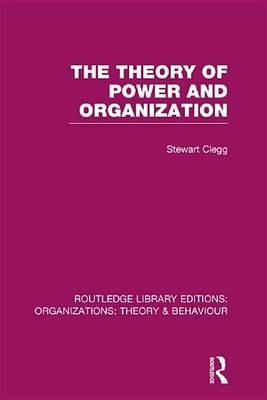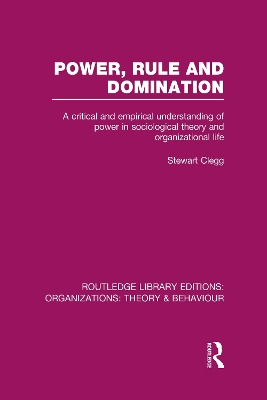Routledge Library Editions: Organizations
3 total works
In this volume the authors develop a systematic and chronologically based critique of the major concepts, figures and schools in organization. Themes discussed include:
- the development of scientific management and the responses of Gramsci and Lenin to it
-
- the meaning of Mayo and the Human Relations School
-
- the development of typological systems and contingency models of the organization
-
- key concepts of goals, environment and technology.
In this book the author develops a theory of power and organization, derived from a critical consideration of a literature extending across sociology, political science, philosophy and organization theory. The book raises and answers some of the issues which are important in the construction of a theoretical apparatus for the analysis of power and at the same time it proposes an alternative concept of organization, centred around the themes of power and control.
This volume presents a critical analysis of sociological theorizing and power which enables the reader to grasp fully the nature of power, rule and domination in organizational life. By making use of the discussions he recorded at a construction site, the author brings the reader into contact with the everyday social world in which he locates his analysis of power and authority at both a structural and phenomenological level. This analysis is complemented by the author’s review of the literature on ‘theorizing’ by writers such as Wittgenstein, Blum, McHugh, Phillips and Cicourel; his examination of the ‘community power debate’ between authors such as Bachrach and Baratz and Dahl; and a survey of the literature on power in its organizational aspects by Weber, Simmel and the more contemporary work of Hickson.


